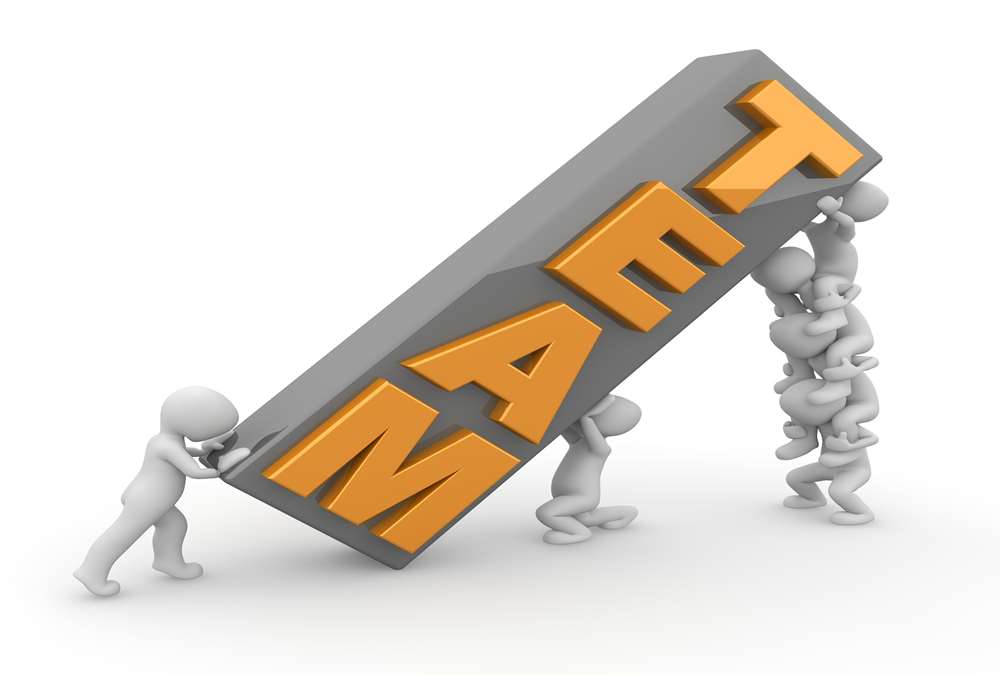- Home
- Business Processes
- Industry Knowledge
- Aerospace Industry
- Automotive Industry
- Banking Domain
- BFSI Industry
- Consumer/ FMCG Industry
- Chemicals Industry
- Engineering & Construction
- Energy Industry
- Education Domain
- Finance Domain
- Hospitality Domain
- Healthcare Industry
- Insurance Domain
- Retail Industry
- Travel and Tourism Domain
- Telecom Industry
- Leadership Skills
- eLearning
- Home
- Leadership
- Team Leadership
- Team Foundation in Forming Stage
Team Foundation in Forming Stage
This is the first stage of team development. This is the stage when the foundation of the team is laid. During the Forming stage, team members have a high dependence on their leader for guidance. Learn the practical strategies you can use during this stage to help your team develop into a highly effective performing team.
Good team development begins on day one and forming is the “Getting to Know You” stage. You can compare this stage with your first day at school as a child, or perhaps with your first day on a new job. Some obvious behaviors are; everyone is polite, overly cautious, and generally doesn't know what to expect. This is the first stage of group development – Forming where the team members are trying to get to know one another and getting comfortable with one another.
Establishing Roles and Responsibilities
In the Forming stage, the team comes together and members try to know each other and establish a common understanding and formulate roles and responsibilities. Team members may be excited and enthusiastic, but they may also be anxious. In this stage, the members try to explore and understand the behavior of the team members. They make their efforts in understanding the expectations of the peer team members, are polite, and exploring how to gain acceptability and fitment into the team. Because everything is new there is a fair amount of confusion and anxiety as members are naturally trying to understand their own roles, the roles of the other team members, and their purpose in the group. This is entirely natural and to be expected. People are unsure, suspicious, and nervous. Productivity might be low as people try to put their best foot forward.
Exploration by Members
It takes time for any new team to become a cohesive unit, “Forming” starts with lots of exploration as group members get to know one another. Think of this stage as an exploration period in which individual roles and responsibilities are being sorted out. In this stage, team members are generally enthusiastic and motivated by a desire to be accepted. They're typically very polite to each other and trying to figure out similarities and differences with others. First impressions play a key role as people try to figure out the similarities and differences. Issues that may arise are questions of whether each person feels like they belong to the group, whether other members can be trusted, and who is in charge.
Orientation is the most important task in the forming stage and members are looking towards the leader to provide the required direction. During the Forming stage, team members have a high dependence on their leader for guidance and the leader's task is directing, so that the group can get coordinated in their efforts.
Setting Operational Structures
This is also a good time to look at how the group is organized because the group has not yet molded into a strong, effective unit, therefore it's still relatively easy to reorganize the group if required. It's also helpful to set group ground rules, which are expectations about how work will be done, decisions will be made, and how people will treat each other. In short, the leader has a wonderful opportunity to be sure that the right people are in the right place using the right process. “Forming” stage is usually short, and sometimes may only last for a single meeting where the team members get introduced.
Forming an effective and cohesive team is fundamental to the overall success of the team and pulling the right team together from the start has benefited far beyond just completing tasks on time. Now we will focus on different strategies for dealing with issues that may arise during the first stage, “Forming”. You'll learn strategies for selecting high-performing team members most suited for your project or team, as well as recommendations for performing proper introductions, clarifying team purpose and context, and making sure team members understand their responsibilities. As a leader, you can use several strategies during this stage to build an effective team.
Tips for Forming Stage - Leaders:
Suggestions for the Team Leader/Member in this stage:
- Search out the people in your organization with the necessary skills and the time to be part of your team
- Provide team structure
- Ensure that members feel comfortable and knowledgeable about the group
- Give clear information on the project and goal or ask for clarity
- Clarify roles and responsibilities
- Clarify the team's goals and outline the planned schedule
- Clarify the individual role and how they will be contributing to the overall accomplishment
- Build enthusiasm by talking about why the group will be successful
- Promote an open and supportive environment
- Encourage relationship building
- Practice constructive team behaviors
- Educate about phases of team development – this will make it easier to move out of more difficult phases.
Characteristics of the Forming Stage:
- Exploration - Trying to know each other
- Focused - Trying to understand similarities and differences
- Confusion/Anxiety - Trying to gain acceptability
- Lower productivity – Everyone trying to put their best foot forward
- Leadership – Generally directive to set the tone
- Risk: Avoidance of conflict
- Learning: Gaining understanding about opportunities and challenges
- Excitement: Motivation and excitement about the project.
Related Links
You May Also Like
-
The development of teams is an ongoing process because the composition of the team may keep on changing. The new members may join and the old members may leave the team. The team members pass through several stages for the development of the team and there has been a lot of research to identify these stages. In this article, we discuss the common theories of team development.
-
Share Information with Your Team
Willingness to share information is the most critical and the very first step in the Journey to employee empowerment and team development. People cannot make good technology or business decisions without information. They need to understand the purpose behind what they are doing and connect with the big picture. People with information feel the need to take the risk of making decisions that enable business growth.
-
Many different types of teams have been identified by social scientists. Managers may encounter the diverse types of challenges while managing different kinds of teams. Challenges associated with Cross-Functional Teams might be different from that of a Geographically Dispersed Team or a Virtual Team. This article explores some common categories and subtypes of teams.
-
Tips for Effective Time Management
After studying and analyzing how time is spent, why time is wasted, and where time is wasted you need to decide about the changes required for effective utilization of time. For this purpose, a large number of remedial measures can be taken by you. The first and foremost determinant of a planned and purposeful utilization of time is to develop consciousness of the value of time at all levels of the organization. Planning, goal setting, and defining priorities are concerns to addressed immediately.
-
Generating Ideas using Brainstorming
The brainstorming technique was developed by Alex F. Osborn in 1957 and brainstorming means where a team of members generates a large amount of alternative fruitful ideas on a specific problem without any criticism and then evaluates each idea in terms of their pros and cons. Brainstorming techniques fall into four broad categories: visioning, exploring, modifying, and experimenting.
-
Generating Ideas using SCAMPER
SCAMPER is an activity-based thinking process that can be performed by Cooperative learning. SCAMPER is an acronym that provides a structured way of assisting students to think out of the box and enhance their knowledge. This can be used in the organizational context as a technique for creative problem solving and as a toolkit to generate fresh ideas.
-
Teams are certainly very relevant and important elements in today’s high-performance organization but the important thing to remember as a leader is that we can’t simply rely on putting highly effective individuals together to make a highly effective team. Empowerment increases the effectiveness of the team and drives many intangible benefits both for the organization and the employees.
-
Teams are part of the modern organizational culture. Whether you are a team leader or a team member, having a better understanding of how teams work, and being able to identify where the team is in the process, is a critical part of ensuring the team is ultimately successful. Start with the basics and understand what a team is and what role they play in an organization.
-
Effective Business Communication
Communication is all about getting the message across correctly. To make this happen, you need to have good speaking skills and good writing skills. If you have these skills coupled with good listening skills and interest in reading, you have all the potential to be a good communicator. What things should the leader take into consideration to be more effective with interpersonal communication?
-
Tools for Developing Your Team
If a manager has too many weak spots in the talent of the team, the ability to empower the team members to independently execute the project is impaired. Assignments fall behind schedule or stretch out because the needed skills or knowledge are not in place when needed. To successfully execute important projects, hiring talented people, and increasing the talents of existing staff are most important.
Explore Our Free Training Articles or
Sign Up to Start With Our eLearning Courses

About Us
Learning
© 2023 TechnoFunc, All Rights Reserved










